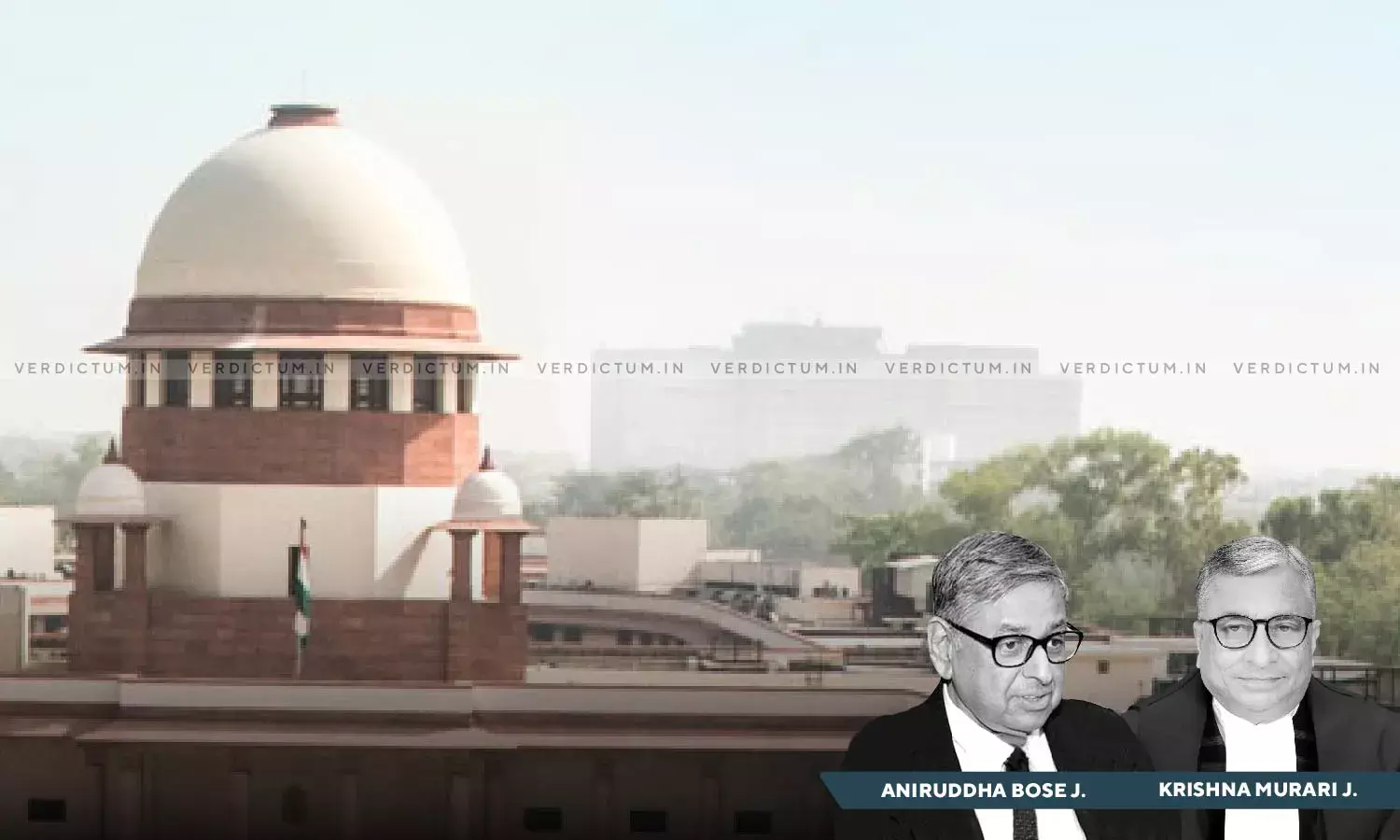Right To Pensionary Benefits Is A Constitutional Right, Cannot Be Taken Away Without Proper Justification: SC Reiterates

The Supreme Court while placing reliance on the case of State Of Jharkhand & Ors. vs Jitendra Kumar Srivastava & Anr. has reiterated that the right to pensionary benefits is a constitutional right and as such cannot be taken away without proper justification.
The bench consisting of Justice Aniruddha Bose, and Mr. Justice Krishna Murari while setting aside the Madras High Court orders held that "Keeping in mind the submissions of both the parties, at the very outset we would like to state that the right to pensionary benefit is a constitutional right and as such cannot be taken away without proper justification as has been held in the case of State Of Jharkhand & Ors. vs Jitendra Kumar Srivastava & Anr."
The Court also held, "Any person, whose entire identity, and their past, present and future rights are challenged, must at the least be given an opportunity to be fairly heard. In the case at hand, however, such a right has been denied to the Appellant, by not allowing the Appellant an opportunity to be heard, the principle of “Audi Alteram Partem”, a principle of natural justice has also been violated. The Appellant, in proceedings where the genuineness of his belonging to a community is under question, must have a right to be heard".
Senior Counsel S. Prabakaran and Senior Counsel Mr. R. Balasubramanian appeared for the appellant. Senior Advocate Gopal Sankaranarayanan, and AOR Joseph Aristotle appeared for the respondent.
The case arose when the appellant who was working in the Bank of the respondent as a "clerk-cum-shroff" for which he was appointed on the basis of a community service certifying that he was from the Konda Reddy Community, then appellant retired from the post after 38 years, however to his surprise two days before his superannuation, he received a cessation order on the grounds of his caste certificate being false. All his retirement benefits except PF were withheld from him.
Hence the Appellant approached the Madras High Court wherein he filed a Writ petition seeking remedy against the same, the High Court issued an order directing the Tamil Nadu State Level Scrutiny Committee (first respondent) to conduct a fresh enquiry, and when the committee did not adhere to the directions given by the High court the appellant sought the High court again which directed the committee to complete the enquiry within a period of eight weeks
By a report dated November, 11th, 2017, the committee concluded their enquiry and the conclusion was Appellant, in fact, did not belong to the Konda Reddy Community, based on this a show cause notice was issued to the appellant on December, 7th, 2017, the appellant then filed a Writ petition challenging the same. Despised by the actions of the committee against the case certificate, the complainant filed two petitions but to his surprise, both of them were dismissed by the Madras High Court vide its judgment dated April, 16th, 2019 on the ground that despite fair opportunity being granted to the Appellant, he had not abided by the same.
The Supreme Court was appalled at the treatment given to the appellant by the respondents, as during his due course of employment no such evaluation was conducted with respect to the documents produced by the appellant. In this context, the Bench held, "a very clear pattern of harassment is visible, and there appears to be a sinister motive against the Appellant and his right to pensionary benefits. Even after 38 years of service, irrespective of the merits of the case, the fact that the Appellant has not been treated with any respect is sad to see, and the use of delayed procedure as a dangling sword can only be interpreted as harassment.".
The Court while holding the importance of a community certificate observed "In such a scenario where the validity of a community certificate is put to question, keeping in mind the importance of the document and the effect it has on people’s rights, the proceedings questioning the document cannot, except in the most exceptional circumstances, be done ex-parte."
The Supreme Court also condoned the delay of 19 years done by the committee, It also pointed out some errors committed by the Madras High Court, majorly not considering the findings brought up by the appellant and not giving the appellant an opportunity to be heard.
The Court duly noted "In the present case, however, there exists a very clear difference. While the Respondents have claimed the Appellant’s community certificate to be fake, such a claim has not been proven. Even though two reports declaring the community certificate of the Appellant as fake were submitted after inordinate and unexplained delay, however, both the reports have not allowed the participation of the Appellant.".
The respondents were therefore directed to grant all post-retirement benefits to the appellant along with a 6% Simple Interest.
Cause Title: R SUNDARAM v. THE TAMIL NADU STATE LEVEL SCRUTINY COMMITTEE & ORS.

